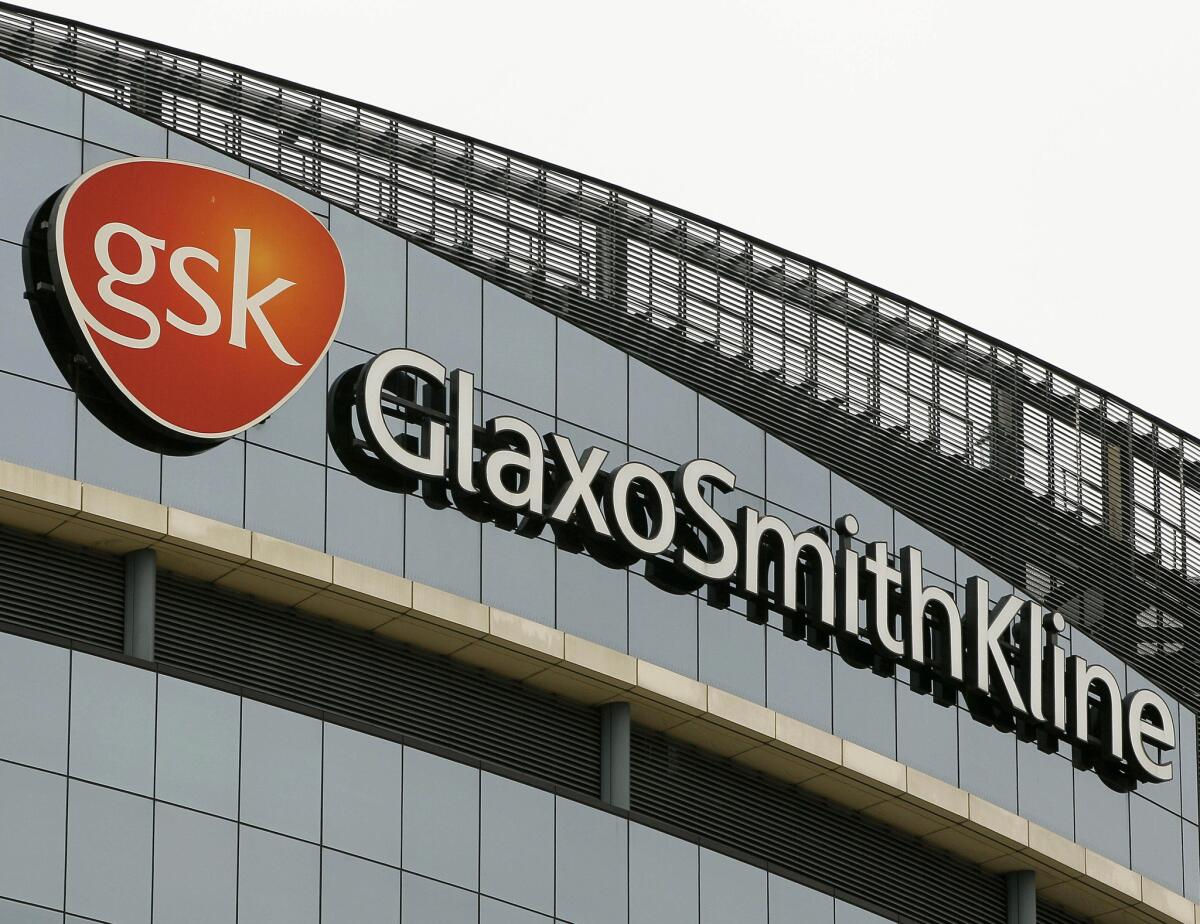GlaxoSmithKline said executives in China may have broken laws

- Share via
British drugmaker GlaxoSmithKline said Monday that some of its executives in China appeared to have broken laws as authorities there investigate allegations of widespread bribery by the company.
Chinese police, who have detained four company employees in China so far, accused the drugmaker of bribing hospitals and doctors to prescribe their drugs and using a network of travel agencies to funnel the money.
It’s part of a string of international firms that have come under scrutiny in China over allegations of bribery and corruption in the pharmaceutical industry. The new leadership that took over in China last year has vowed to keep control of spiraling healthcare costs and improve the medical system.
PHOTOS: Top cities with falling wages
Chinese authorities have said illegal dealings contribute to higher prices for drugs and other medical expenses for ordinary Chinese people.
Abbas Hussain, GSK’s head of emerging markets, said on Monday the drugmaker had met with Chinese officials and was reviewing the company’s business model.
“Certain senior executives of GSK China who know our systems well appear to have acted outside of our processes and controls, which breaches Chinese law,” Hussain said in a statement.
Also on Monday, another British drugmaker, AstraZeneca, said Shanghai police visited its office on Friday and took away a sales representative for questioning.
A spokeswoman told Reuters that it involved an individal case and there is no reason to believe “it’s related to any other investigations.”
ALSO:
Citigroup profit jumps 42% in second quarter
CalPERS earns 12.5% on investments over the last year
Arsenic in apple juice: FDA proposes limiting level of toxic metal
Follow Shan Li on Twitter @ShanLi
More to Read
Inside the business of entertainment
The Wide Shot brings you news, analysis and insights on everything from streaming wars to production — and what it all means for the future.
You may occasionally receive promotional content from the Los Angeles Times.










